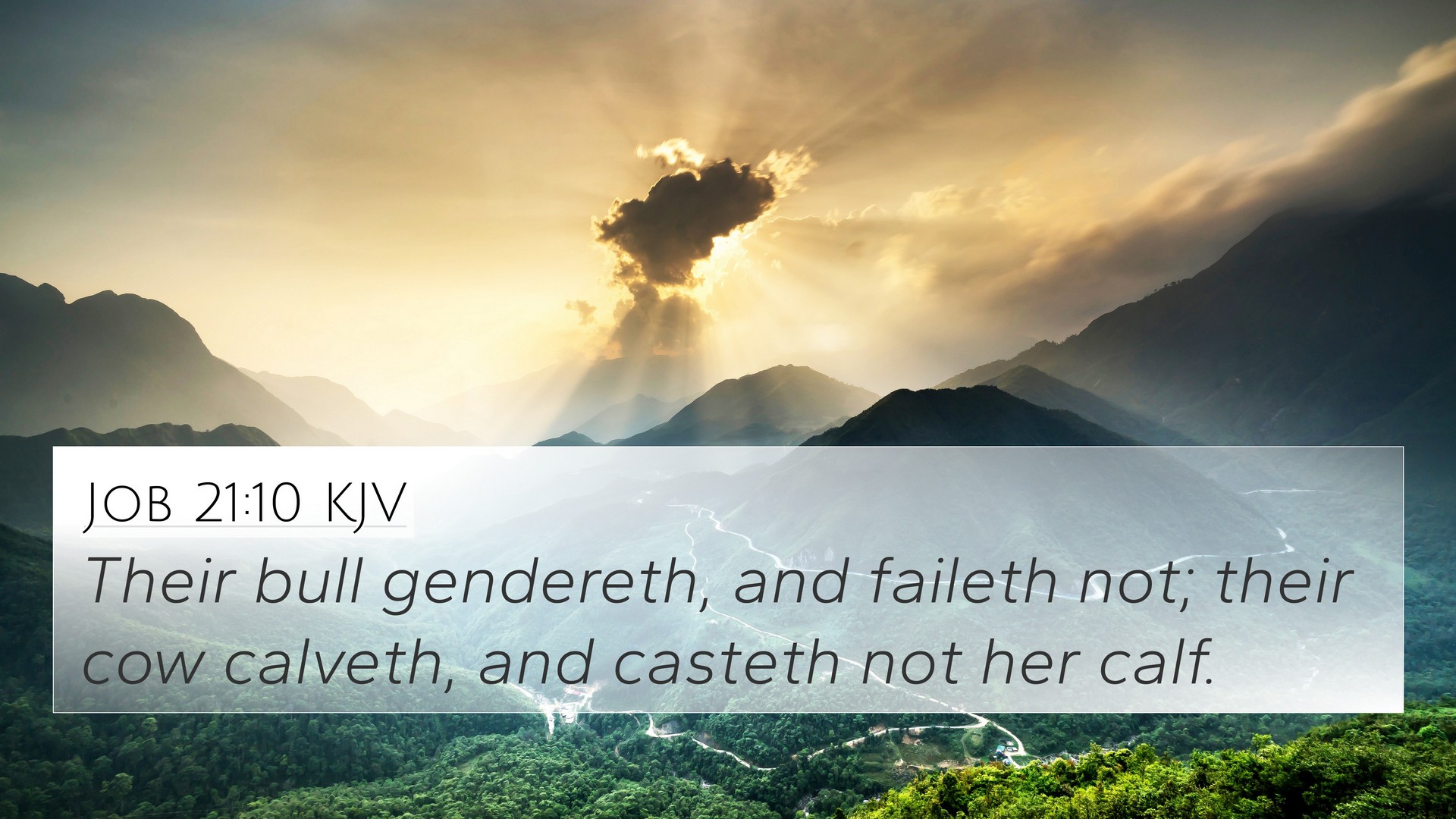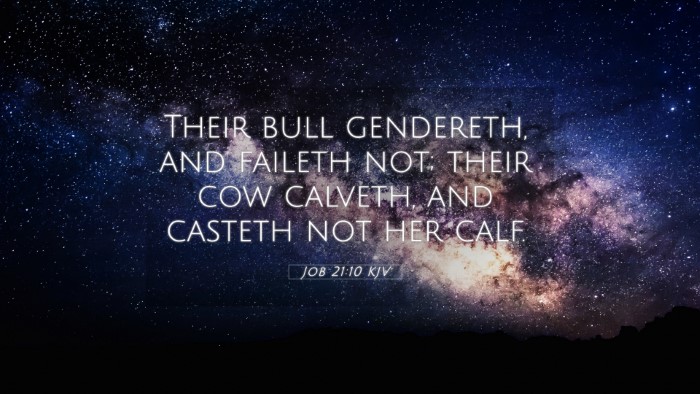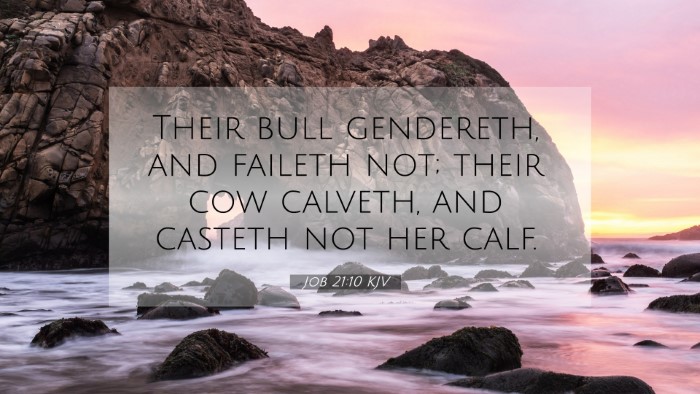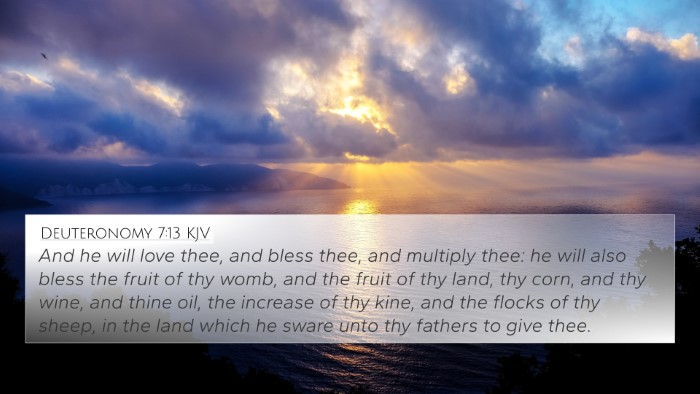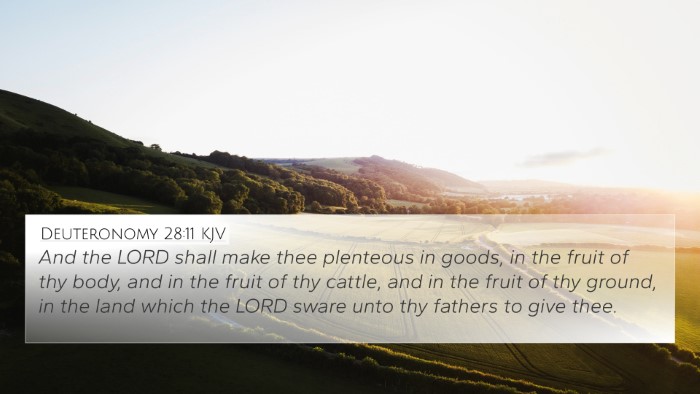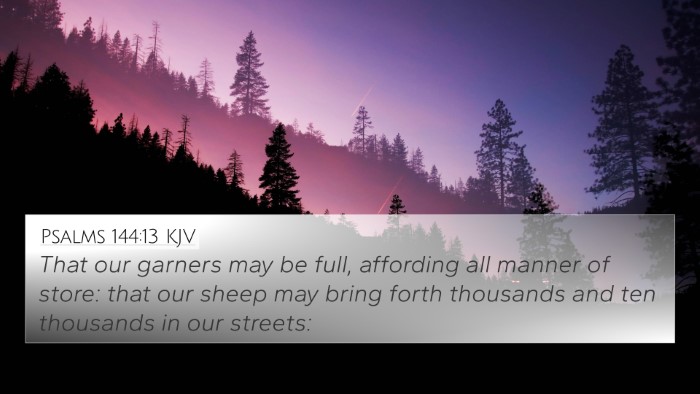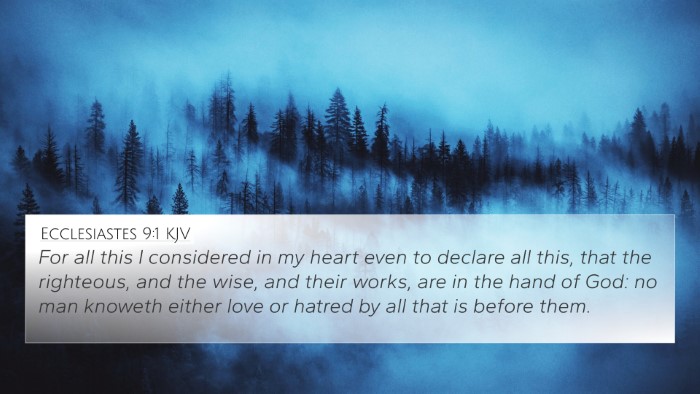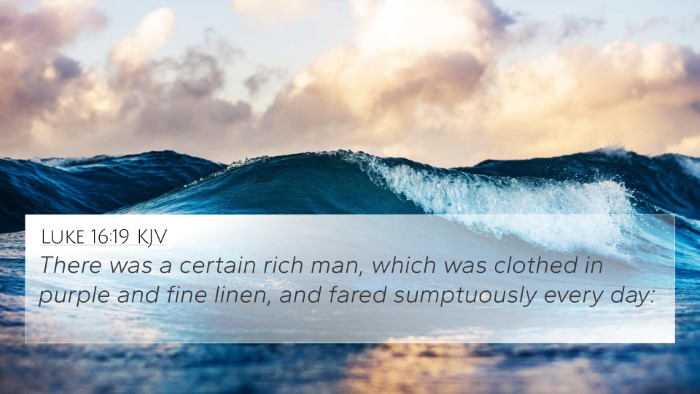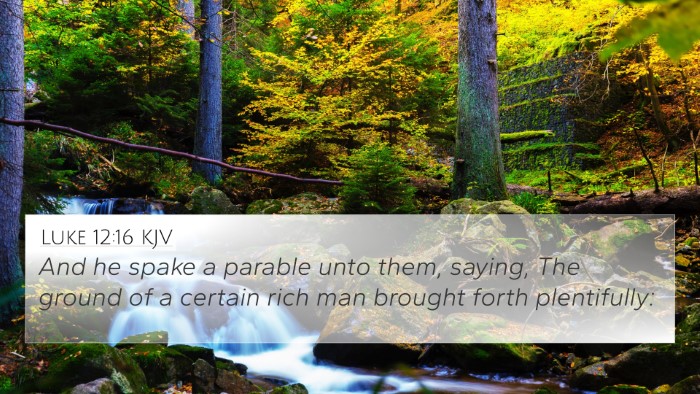Understanding Job 21:10
Job 21:10 states: "His bull gendereth, and faileth not; his cow calveth, and casteth not her calf." This verse is part of Job's response to his friends during his suffering, highlighting both a critique of the prosperity of the wicked and the apparent disregard for the struggles of the righteous.
Verse Interpretation
The commentary from Matthew Henry emphasizes that Job reflects on the apparent prosperity of the wicked, even amid their wrongdoing. His assertion about livestock symbolizes fruitful living and abundance, contrasting the dire situation he faces. Thus, Job points out the hypocrisy in his friends' beliefs that suffering equates to divine retribution.
Albert Barnes elaborates that Job observes how the wicked seem to enjoy good fortune, producing offspring and laboring successfully despite their moral failures. This presents a challenge to the traditional view that righteousness always results in blessing while wickedness leads to suffering.
Adam Clarke notes that the imagery of successful livestock serves as a poignant reminder of life's duality; the exterior success of the unrighteous juxtaposes with Job's inner turmoil. Clarke reveals that Job effectively argues against the simplistic retribution theology advocated by his friends, showcasing the complex reality of divine justice.
Key Themes and Connections
This verse evokes several significant themes within the scripture, including:
- Theodicy: The struggle to understand God's justice.
- Prosperity of the wicked: The apparent disconnect between morality and success.
- Righteous suffering: The theme of suffering endured by the just.
Bible Verse Cross-References
To comprehensively understand Job 21:10, connecting it with related scriptures enhances interpretation. Here are some relevant Bible verse cross-references:
- Psalm 37:1-2: "Fret not thyself because of evildoers... for they shall soon be cut down like the grass."
- Proverbs 24:19-20: "Fret not thyself because of evil men, neither be thou envious at the wicked."
- Ecclesiastes 7:15: "I have seen the just perishing in their righteousness, and the wicked prolonging their life."
- Jeremiah 12:1: "Righteous art thou, O Lord, when I plead with thee; yet let me talk with thee of thy judgments."
- Malachi 3:14: "Ye have said, It is vain to serve God: and what profit is it that we have kept his ordinance?"
- Luke 16:25: "But Abraham said, Son, remember that thou in thy lifetime receivedst thy good things, and likewise Lazarus evil things."
- Romans 9:14: "What shall we say then? Is there unrighteousness with God? God forbid."
Tools for Bible Cross-Referencing
In studying connections between Bible verses, various tools can assist in enhancing understanding:
- Bible concordance: A reference list of words or phrases with verse locations.
- Cross-reference guide: Books or resources that provide connections between scriptures.
- Bible cross-reference system: Organized lists of scriptures that relate thematically or contextually.
- Cross-referencing Bible study methods: Techniques for studying related scriptures to gain a deeper understanding.
Conclusion
The verse Job 21:10 serves as a profound reflection on the challenges of faith amidst suffering. By analyzing this verse in conjunction with cross-references and commentaries, we grasp a richer understanding of the complexities of righteous suffering and divine justice. The insights from Matthew Henry, Albert Barnes, and Adam Clarke reinforce the importance of examining connections between scripture, ultimately encouraging thoughtful engagement with the biblical text.
